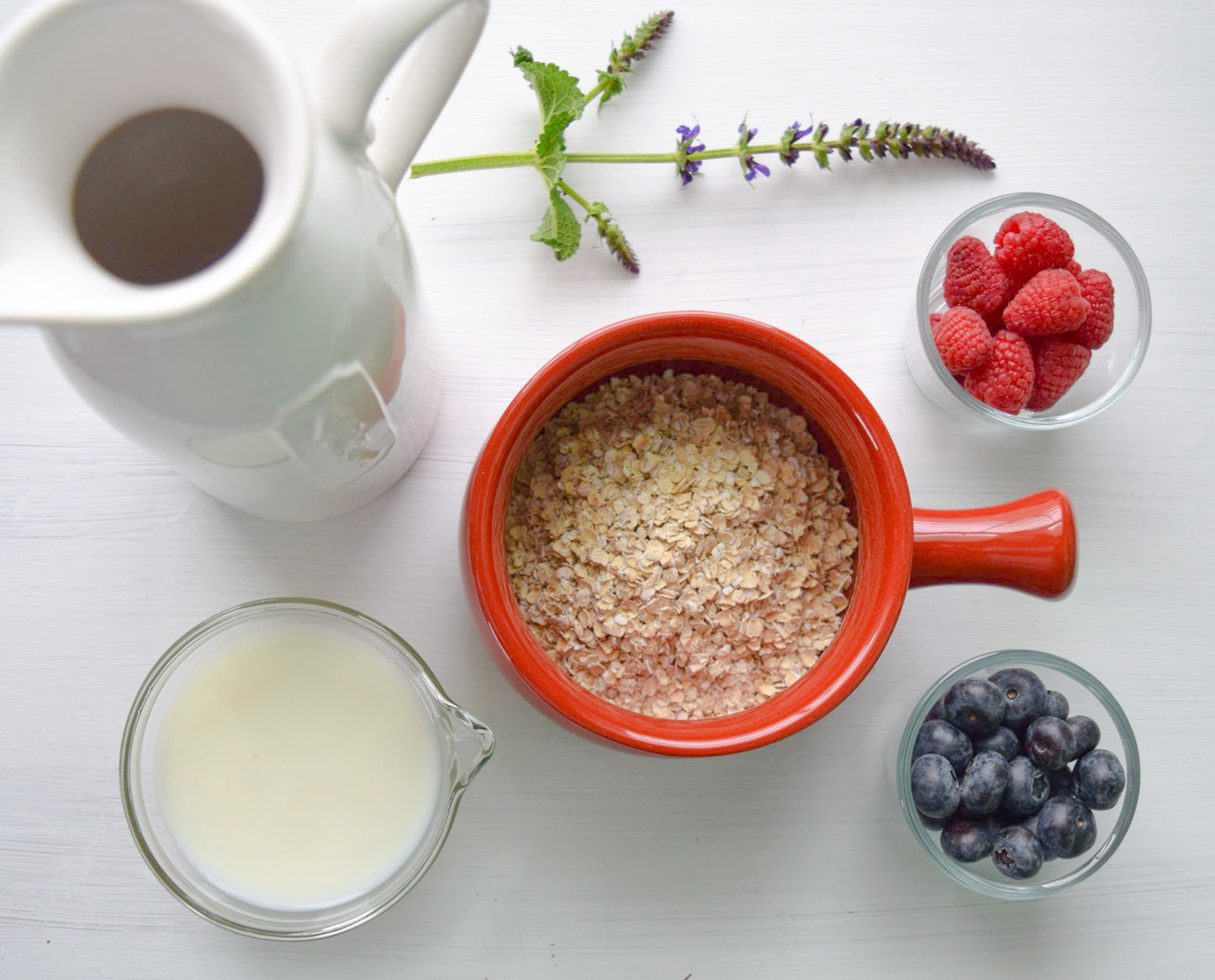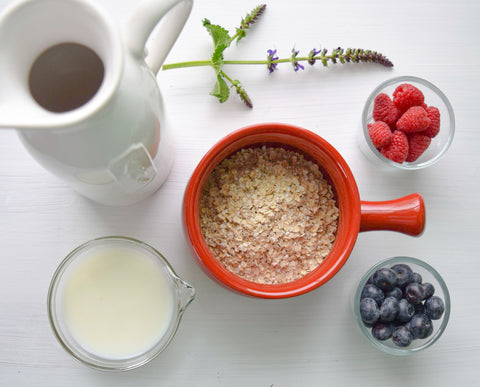
Grains usually get a bad rap in the low-carb and Paleo communities. In some cases, it’s deserved - refined grains are pretty devoid of nutrients, and they spike your blood sugar, which can make you crash a couple hours after you eat them.
Whole grains are a little more nuanced. They don’t spike your blood sugar as quickly as refined grains do, and whole grains are rich in nutrients and fiber...although if you’re sensitive to gluten, agglutinins, prolamines, trypsin inhibitors, or other grain-specific compounds, whole grains can still give you trouble.
But let’s not dismiss an entire class of foods just yet. Not all grains are created equal, and if you’re looking for good carb sources, it’s worth your time to consider grains individually instead of as a group. Rice, for example, can be great for you (read more about why here).
Oats can be great for you, too. They’re a misunderstood - and often overlooked - source of healthy carbs, and it pays to think about including them in your diet. In this article, you’ll read about:
- The benefits of oats
- Are oats gluten-free?
- Which type of oats is best?
Why oats are good for you

 Oats have a lot going for them:
Oats have a lot going for them:
- Satiety and prebiotics. Oats are rich in both soluble and insoluble fiber. Fiber slows down the rate at which you digest food, which helps you absorb more nutrients from your meals [1]. It also feeds good gut bacteria [2], helps maintain your gut integrity [3], and keeps you full for a long time [4,5]. Fiber is a big part of why oatmeal is so satisfying.
- Antioxidants. Oats are also rich in phytic acid. Phytic acid gets labeled as an antinutrient, which, technically, is true. Phytic acid blocks you from absorbing minerals like iron [6], zinc [7], and calcium. But if you’re eating meat, cheese, or nutrient-dense greens on a regular basis, you probably already have more iron, zinc, and calcium than your body can use, so phytic acid’s antinutrient effect isn’t actually that big a deal. In fact, phytic acid is quite good for you. It’s a strong antioxidant [8,9], it shows promise for killing cancer cells [10], and it reduces your risk of kidney stones by blocking oxalate [11].
- Low glycemic load. Oats have a low glycemic impact, meaning they digest gradually and don’t spike your blood sugar much. There are two reasons oats are so low on the glycemic index. The first reason is that the fiber in oats keeps your blood sugar stable. The second reason is that oat starch is unusually high in amylose, a densely-packed starch molecule that takes a long time for your digestive enzymes to break down. Of all the carbs you can eat, high-amylose ones digest the slowest and spike blood sugar the least [12,13].
- Nutrient density and protein. Oats are an excellent source of manganese, and a decent source of copper, iron, magnesium, phosphorus, and vitamin B1. They’re also surprisingly rich in protein, boasting seven grams per serving - a lot more than most other grains [14]. If you eat meat, that might not sound like much. But if you’re vegetarian or vegan, protein can be hard to come by, and those extra few grams can make a difference.
Oats have some unique benefits in the grain world. But are they a good option if you’re trying to stay gluten-free?
Are oats gluten-free?
The short answer is yes. The longer answer is that it depends.
Pure oats contain no gluten. However, a lot of farmers will rotate between oats and wheat, or grow the two next to each other, because growing oats replenishes soil nutrients that wheat pulls out, and vice versa. If oat and wheat crops rotate or grow near each other, there’s a risk of gluten contamination in oats.
So if you’re celiac, look for oats that are specifically labeled as gluten-free. Gluten-free oats grow on dedicated fields away from wheat.
Which type of oats is best?
 You have a few different options when it comes to oats, and you should know the differences between them, because nutritionally they are very different from one another.
You have a few different options when it comes to oats, and you should know the differences between them, because nutritionally they are very different from one another.
- Steel-cut oats are your best option. They have the most fiber and protein, and they spike your blood sugar the least. They also have a wonderfully nutty flavor and a firmer texture than other oats.
- Rolled oats are the oats that you often see in baking. Rolled oats also have a low glycemic index, so they won’t spike your blood sugar. They aren’t quite as nutrient-dense as steel-cut oats, though.
- Quick-cooking oats are refined and partly steamed during processing. They lose some of their nutrients and they have a higher glycemic index, but as their name implies, they’re also faster to cook. Quick-cooking oats are fine, but if you have the time, you might as well go for steel-cut or rolled oats to take advantage of those extra nutrients.
Summing up
Oats deserve consideration as a healthy carb source. They’re rich in fiber, relatively nutrient-dense (for carbs), gluten-free, slow-digesting, and low-impact when it comes to spiking your blood sugar. If you’re looking for a good clean source of carbohydrates, think about oats. They can be a nice alternative to sweet potatoes, rice, and other staple carb sources.
Not sure how many carbs you should be eating? It’s all good. Everyone’s a little different - you may do well with lots of carbs, or you may do well with very few. Check out this guide to carbs to learn more and find your ideal carb intake. Thanks for reading!
